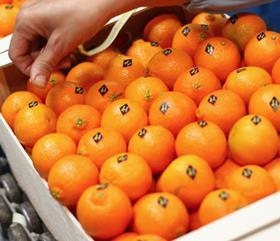
Fresh produce imports into the European Union from third countries increased 5 per cent in 2017, up to 15.5m tonnes, according to data from the European Statistical Office Eurostat.
Of these imports, 13.3m tonnes were fresh fruit, growth of 6 per cent year-on-year, while vegetables rose 1 per cent to 2.2m tonnes.
Bananas and plantains (5.9m tonnes), oranges (1.05m tonnes) and pineapples (941,802 tonnes) were the leading fruit imports, with growth of 7 per cent, 11 per cent and 11 per cent respectively.
Also noteworthy were apple imports, with 448,304 tonnes (+1 per cent) and avocados with 486,055 tonnes (+ 9 per cent), Eurostat reported.
Eurostat said that the tomato was the main vegetable imported by the EU from third countries last year, making up 25.5 per cent of total purchases in the vegetable sub-sector at 568,069 tonnes (+8 per cent).
Other leading vgetables from third nations were potatoes with 430,492 tonnes, growth of 14 per cent, and onions with 243,109 tonnes (+8 per cent).
'For Fepex, the data show that imports of vegetables from third countries is highly concentrated on certain products, mainly tomatoes and potatoes, followed at a distance by onions and peppers.
'Meanwhile purchases of fruit cover an ever wider range – bananas, oranges, pineapples, lemons, grapes and avocados – while also highlighting the growth of products such as melons, watermelons or soft fruit, while others such as pears and apples decrease, with imports falling in the last ten years by 40 per cent and 45 per cent respectively.'



